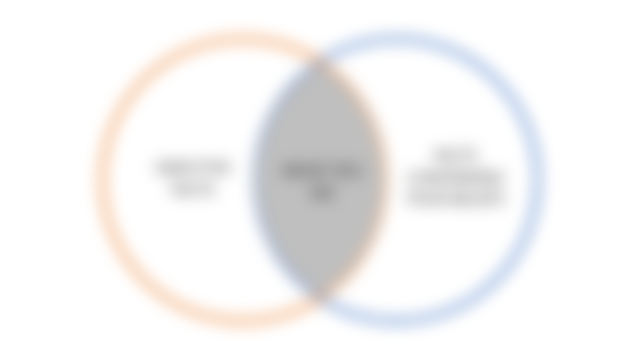Our subconscious mind plays a big role in our thinking and decision making. I should rather put it this way, the way we think. The routine day to day thinking, unknown to us gets influenced and we do not notice it because it is so natural to us. Advertisement and marketing strategies are planned using these techniques to make us think and behave the way they want. In our normal life also these things affect our thinking. Unless we are very particular about it we often fall prey to it.
I will list some of them here.
Confirmation bias and frequency illusion
We like to be with people whose beliefs match with that of us. It is quite natural because we think that our views on majority of things are same. In other words we don’t want to mix with those people whose views even if it is equally logical, are not similar to us. It is as if we will feel threatened that our views may crumble in front of theirs. It is a called conformation bias. Similarly we tend to seek only those information which matches with our belief. A study in US has shown that we spend 36 percent time more reading articles which conform to our views and beliefs. You will seldom see a sales man going against your opinion while making a purchase. Even if he goes then he will put it across in such a way that you will not notice the difference how he is influencing your thinking.

There is something similar to it and it is called frequency illusion. When we buy a new car, we think that we are seeing more cars of the same model everywhere. It gives a mental reinforcement that with so many cars of the same model as mine, then I must have chosen a good car. So many people cannot be making a wrong choice.
Swimmers body illusion
Rolf Dobelli’s in his book ‘The Art of Thinking Clearly’ coined this term. He says that professional swimmers have a great physique that is suited for a swimmer, that’s why they are such good swimmers and not because they train hard only. It is more of a natural selection than the result of their training.
To put it in another way, if we see an advertisement of a muscular man promoting a protein shake, we will identify with the physique and think that the protein shake will make us like that model. But actually the protein shake only will not give us a muscular body. The model for the advertisement has been selected because he has a good body and he may not be taking that brand of protein shake at all. We try to link the model and the product and think that it will work on us also. But our body type may be such that we may never be able to get the physique that of the model. His natural body structure may be built for heavy muscles whereas ours may be not so.

Sunk cost fallacy
Sunk cost means the money or time or effort that we have already paid and which cannot be recovered. It is gone forever. We are designed to feel the pinch of loss more than the satisfaction of gain. So naturally we will try to minimize our losses than maximize our gains. Let’s see an example – You have bought a ticket for 100 dollars for a holiday trip and then you see another better package for 70 dollars. You take this also only to realize that both the trips are at the same time and both are non refundable. Now which one will you chose? Most likely you will choose the 100 dollar one because it will give you a lesser sense of loss though you would have enjoyed more in the 70 dollar one.

Due to this fallacy we will chose which will give a less feeling of loss when we will think back about it.
The gamblers fallacy
Suppose you and your friend are playing head or tail. Your friend flips the coin 3 times and each time it is a tail. Now you will think that there were 3 consecutive tails so the next will be a head surely or there were 3 consecutive tails so the next will also be a tail. But actually the chance of head or tail is still 50/50 irrespective of what your mind is telling you. The odds will always remain the same. This is the gamblers fallacy.

We give more weightage to what has happened in the past and think that in future also it will be like that only. We ignore how things actually work and make a conclusion that the past events will influence the future. We do not take into consideration that each event is unique in itself. We have a positive expectation bias and continue till we get a positive result. But in that process we may be making more loss, as in gambling.
Buyers Stockholm syndrome
When we go for shopping (mostly applicable to women) we sometimes buy things which are too gaudy or costly. When we come back home then we realize that we should not have bought it. We then feel guilty of buying it or feel bad that we spent so much money on it. To compensate that, we will create a mental state where we will try to justify our purchase as a real requirement. We will now try to rationalize our decision to buy it by any means and get a satisfaction. The mistake we made is that we did not think properly before we acted on it.

The anchoring effect
Again an example first. There are two types of chocolates, the 1st type costs 1 cent and the second type costs 10 cents, both are a great bargain price. Here considering the difference in quality people will chose the 2nd one. Now the shopkeeper reduces the price by 1 cent, so the 1st one becomes free and the 2nd one becomes 9 cents. Now the people will take the 1st one because it is free. Now they will ignore the quality. This is called the anchoring effect.

We don’t focus on the value of a particular product but make our decision on the basis of comparison with another product.
We rely more on memory than on facts
Memory is fallible and more often than not we base our decisions on memory of a similar situation than on the facts of the present situation. We find it more comfortable taking decisions based on memory of previous experiences. We find it troublesome to go into the facts of the present situation if we can find a reference in our memory of a similar situation. Instead we should base our decisions on the present hard facts.
These things go on in our subconscious mind and we hardly notice it and others take advantage of it. Next time when you are in such a situation then do keep these things in mind.






Interesting you are a philosopher